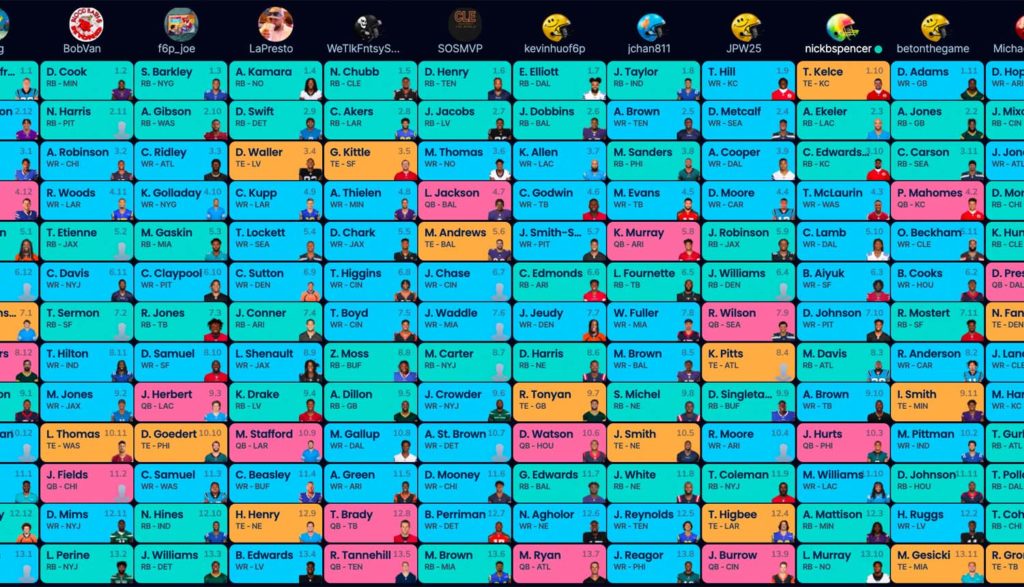Do you watch every college bowl game in an effort to get the scoop on under-the-radar running backs and linemen? Do you stream all the sports channels and own a multi-channel DVR so you can record, literally, every game played? Do you spend hours on sports websites looking at hundreds of player pages and computing past season statistics? Do you have trouble maintaining your relationships because of all the time and money you spend glued to some screen filled with athletes and sports stars?
If you answered yes to one or more of those questions, you’re probably a fantasy sports fan.
There’s a good chance you’ve participated in a fantasy sports league of one stripe or another if the above activities sound a little familiar. And while that fantasy league might give you the positive perks of connecting with like-minded friends while offering something to chat about at social gatherings, it could also become … a potential problem.
Now, for those who aren’t quite sure what “fantasy sports” even is, let me pause. Fantasy sports pulls in sport fans who take their passion for the game of football, basketball, baseball and the like, a step further than a regular ol’ fan does. They use their sports know-how and, with a group of other fans or friends, assemble rosters of athletes into their own sports league team. They participate in a draft or auction and piece together their own personally chosen team of players, plucked from the ranks of real players and real teams.
And then they compete against each other in imaginary games.
Scoring is determined by how these players perform in actual games, and the outcomes are all based on real-life statistics—such as their chosen players’ completed passes or earned runs, etc.
Of course, most fantasy-focused fans have a little monetary skin in the game, too. A bit of hard-earned cheddar. A little cash pulled from under the mattress. Technically, participants pay entry fees rather than place bets. But they can get those fees back, plus more, if their fantasy players’ numbers come out on top of that statistical mix-and-match.
So what’s wrong with all that?
Well, if you can get around the fact that it feels an awful lot like gambling (more on that later), not much. At least not on the surface. But sometimes, like any online game or social media pursuit, things can get out of hand. What started out in the 1960s as something of a quirky fad has now become more of a cultural norm, with fantasy sports leagues growing at a crazy rate.
According to the Fantasy Sports & Gaming Association, more than 60 million people play fantasy sports. Regularly. As in, all the time. (And that’s a rather conservative estimate since the New York Post recently reported that nearly “75 million people will play fantasy football this year” alone.” Eighty percent of that group is male and 78% have a college degree. Oh, and in 2020 there was some $15 billion dollars invested, one way or another, in pursuit of all that fantasy fun.
Just talking about that kind of big money, uh, entertainment investment can leave some people feeling a bit nervous about potential gambling addictions.
Oh, and there aren’t any gambling protections at play here either since fantasy sports are, according to federal law, a game of skill, therefore they’re not really gambling at all. But if you’re plugged into several leagues, the gaming can still cost you—even without any extra bets—in the area of a couple hundred dollars.
Even if we put potential gambling issues aside, though, we can’t ignore all the time that most fantasy players commit to this fun. Just look at those questions I raised at the beginning of this blog and think about how long some of those activities might take.
One website estimated that sports fans can spend upwards of 18 hours a week on this form of fantasy gaming. And that’s just with involvement in one league. Commitment can grow from there when you’re in two, five, maybe 10 different leagues. Which isn’t all that uncommon.
The bottom line is this, anything that consumes our time and draws us away from the truly important things—family, faith, work, relationships—can end up doing us a disservice if we’re not careful. When our reach for an entertaining escape starts transforming into an unhealthy kind of life-avoidance, well, that’s rarely a good thing. And that’s when this fantasy fun can become a real-world fumble.







Recent Comments